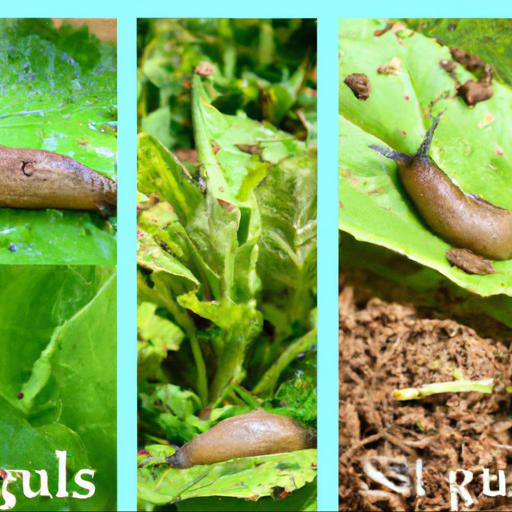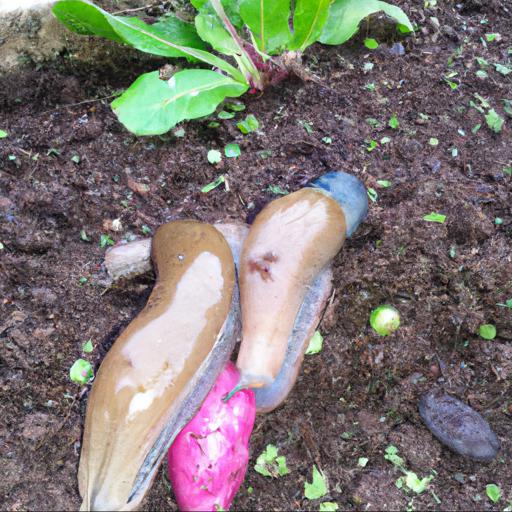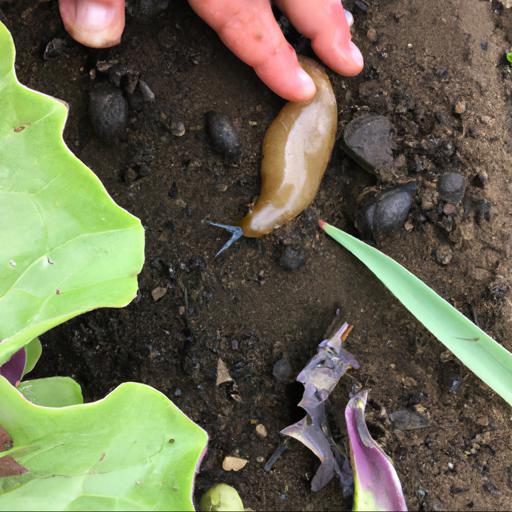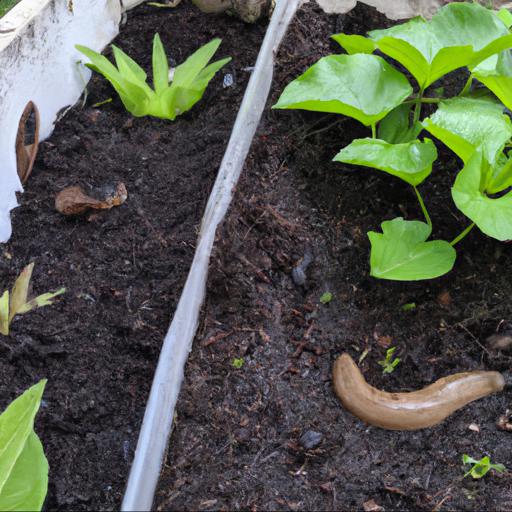Organic gardening is becoming increasingly popular as people strive to reduce their impact on the environment. Slugs can be a real problem in the garden, but there are ways to control them without using harsh, chemical-based pesticides. In this blog post, we’ll explore three ways to control slugs organically and keep your garden healthy and thriving.
From using natural predators to creating barriers, we’ll discuss the best methods to keep slugs away without harming the environment. So if you’re looking for an eco-friendly way to control slugs, read on to find out how!
Three effective organic slug control methods

Organic slug control is an important aspect for any devoted gardeners. Slugs and snails are not only agents of destruction but can also spread diseases and cause damage to greenery in your gardens. As an expert in the UK, I recommend following three organic methods to reduce their population and prevent any damage.
The first and most effective organic way to reduce slug damage is to bring in garden helpers, such as birds, frogs and hedgehogs. Birds will feast on the slugs, while frogs and hedgehogs will quickly devour snails.
Providing a safe environment and ample food sources in your yard will attract these natural predators, and they will take care of the pest issues. The second organic slug control method is to introduce barriers.
Lining the garden walls, beds, and paths with a wide variety of materials, such as eggshells, coarse sand, lavender, and mint will act as a natural deterrent for the slugs. As a bonus, many of these materials will also add a pleasant aesthetic and scent to your garden. The third organic method of slug control is using natural insecticides.
Neem oil and plant-derived pyrethrin both make non-toxic solutions for slugs and snails and are environmentally friendly options. As a precaution, it is recommended to test these products on a small non-visible portion of a plant before applying to the entire garden. In conclusion, the three organic methods to reduce slug and snail damage: bringing in predators, setting up barriers, and using natural insecticides are effective solutions to control them in your garden.
By following the tips above, you can enjoy an aesthetically pleasing and pest free garden.
Benefits of organic slug control

,If you’re a savvy gardener, you know the importance of organic slug control. With the increasing popularity of organic gardening, controlling slugs and other pests in a natural and sustainable way is becoming increasingly important.
That’s why it’s so important to know three different ways to control slugs organically. A great way to control slugs organically is by using companion planting to repel slugs. Planting certain plants, such as garlic, chives, parsley, and lemongrass, in your garden can act as a natural repellent to slugs — thus, attracting fewer of them to your garden in the first place.
Additionally, these companion plants can help improve the overall health of your garden. Brewing up your own beer or yeast traps is a great way to control slugs organically. The slugs are attracted to the beer or yeast scent, and then drown in the beverage.
To set this up, you simply put beer or yeast solution in a shallow container and bury it in your garden so that the lip of the container is level with the soil. The final organic way to control slugs is to set up barriers around sensitive plants that slugs are attracted to.
To do this, you could use materials such as wood chips, sawdust, coffee grounds, or eggshells. These materials create a barrier around the plants and prevent the slugs from ruining your plants. Organic slug control is one of the more sustainable ways to protect and nurture the health of your garden.
By implementing these three different techniques, you can keep your garden organic and safe from slugs.
Tips for implementing organic slug control

Organic slug control is an important part of garden upkeep and maintenance. Slugs can quickly damage or kill plants, resulting in a lot of wasted time and money. Fortunately, there are many ways to use sustainable, naturally derived products to keep slugs away.
Here are three effective tips for implementing organic slug control in your garden. First, try using mustard oil.
Mustard oil has been shown to be an eco-friendly way to repel slugs. Sprinkle a thin layer of the oil around your garden beds and pathways, being sure to cover the entire area that you would like to protect. Additionally, you could spray a diluted solution of the oil around the edges of your garden.
This should discourage slugs from entering your garden, allowing you and your plants to thrive. Second, companion planting is a great way to control slugs organically.
Certain plants can be grown alongside your vegetables and flowering plants to naturally repel slugs. Examples of plants that do well in repelling slugs include oregano, Savoy cabbage, lavender, catmint, and garlic. Try planting a variety of these plants in and around your garden to help keep slugs away.
Finally, create a ‘slug motel’ and bait the slugs! You can make your own ‘slug motel’ by placing a shallow bowl of beer, sugar-water, or stale food near the edges of your garden.
The slugs will be attracted to this bait and instinctively crawl inside to feast. When they do, you can simply collect the bowl and discard the slugs away from your garden in the morning. By using these three tips for implementing organic slug control, you can protect your garden from troublesome slugs without having to resort to chemical pesticides. Just remember to practice organic slug control often, and you’ll be able to enjoy your garden, pest-free!
Final Touch
Organic slug control is possible through a variety of methods. These include creating a barrier with sharp materials, encouraging natural predators, and using natural repellents.
With these methods, gardeners can keep their plants safe from slugs without the use of harmful chemicals.
FAQ
What are the most effective organic methods for controlling slugs?
The most effective organic methods for controlling slugs include handpicking, setting up barriers such as copper tape, diatomaceous earth, and beer traps, and encouraging natural predators such as birds, frogs, and toads.
How can I use natural predators to control slugs in my garden?
Using natural predators to control slugs in your garden can be done by introducing predators such as ground beetles, hedgehogs, and birds into your garden. These predators will feed on the slugs, helping to reduce their population and keep your garden healthy.
What plants can I use to repel slugs organically?
Organic plants that can be used to repel slugs include marigolds, garlic, lavender, chives, mint, and rosemary.
Are there any organic slug baits that are safe to use?
Yes, there are organic slug baits that are safe to use. These baits typically contain iron phosphate, which is a naturally occurring substance that is safe for humans, pets, and the environment.
What are some organic alternatives to chemical slug control?
Organic alternatives to chemical slug control include using barriers such as copper tape or mesh, hand-picking slugs, encouraging natural predators such as birds, frogs, and hedgehogs, and using natural repellents such as beer, coffee grounds, eggshells, and diatomaceous earth.
How can I create a barrier to keep slugs out of my garden organically?
Organic methods to create a barrier to keep slugs out of your garden include using diatomaceous earth, copper tape, coffee grounds, eggshells, and beer traps.

